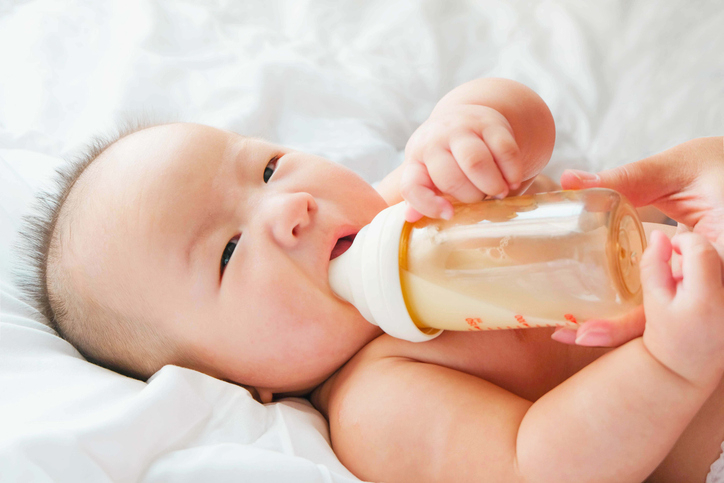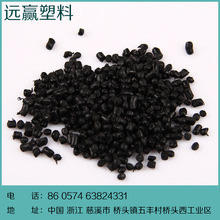Scientists made an environmentally friendly gin from peas. Yes, it will still get you drunk.
Garden peas are probably the last thing you'd ever expect to go into your gin and tonic.
But, scientists at Abertay University and the James Hutton Institute in Scotland have created a gin using garden peas. Yes, you read that correctly. The gin is called Nàdar — which means 'nature' in Gaelic — and scientists claim it has a smaller environmental footprint that traditionally distilled gins made using wheat.
Each 700ml bottle of Nàdar has a carbon footprint of -1.54 kg CO2e (carbon dioxide equivalent), "meaning it avoids more carbon dioxide emissions than it creates," according to an Abertay University statement.
While it's well-known that gin is made from juniper berries, it actually requires a base spirit — most often made from wheat — which the botanicals are then added to. "Traditional beverages like beer and whiskey are produced from cereals which do require quite a lot of artificial fertiliser," said Graeme Walker, professor of zymology at Abertay University, who supervised the pea gin project. "This has an impact on greenhouse gas emissions and climate change."
To compare, a 1 litre bottle of Tanqueray gin has a carbon footprint of 1.8kg CO2. That said, it's also pretty tricky to calculate because a Tanqueray G&T sipped in the U.S. has a significantly higher footprint compared to one imbibed in London. The pea gin's environmental performance is down to the fact that all useful parts of the peas — from the dehulling down to the distilling — are used to create home-grown animal feed.
It took five years of research in collaboration with Arbikie Distillery — a working farm on the east coast of Angus, Scotland — to develop the gin. So, why peas, you may well be wondering? PhD student Kirsty Black — the lead researcher on the project — told Mashable that peas, and legumes in general, are a "great choice of crop for environmental and biodiversity reasons." Arbikie Distillery doesn't ship in any products to make its gin because it's a working farm — they grow all the wheat, barley, potatoes etc. on site.
"Most of the crops that we grow nowadays require the use of fertiliser to provide the nitrogen they need to produce the desired quality and quantity of harvest," Black explained. "Unfortunately, fertiliser use is now known to have a negative environmental impact."
 Credit: Arbikie
Credit: ArbikiePlants need nitrogen (N) for their growth and reproduction. "Despite nearly 80 percent of our atmosphere being N, it is in its non reactive form so unusable by plants," said Black. This is where legumes like peas, beans, and lentils come in.
Peas have a natural ability to source the nitrogen they need for growth using a process called 'biological nitrogen fixation' — which means you don't need to use environmentally damaging synthetic fertilisers. Legumes differ from most plants because they're able to fix nitrogen from the air with a symbiotic relationship with bacteria in root nodules — converting non-reactive nitrogen into reactive nitrogen. "This allows legumes to be self sufficient, not requiring any nitrogen fertiliser, but they also share this nitrogen with surrounding plants and leave residues in the soil reducing the need for fertiliser use on subsequent crops."
SEE ALSO:This beer is made from surplus 'wonky' crumpetsThe distilling process also creates a waste product called 'pot ale' — made from the leftover pea protein and spent yeast, which can be used as a highly nutritious animal feed. The first patch of Arbikie pea gin pot ale is currently being fed to cows on a farm neighbouring the distillery in Montrose, in Angus, Scotland.
So, does it taste like peas? Mashable actually managed to sample the pea gin and can confirm there isn't a pea taste to it. We added tonic water and a slice of lemon to the mix and sampled it in a gin and tonic. Our final verdict: very enjoyable; tastes like gin; has a slight aftertaste that we couldn't quite put our finger on.
"Using peas doesn’t impact the final taste of the gin," said Black. "To make any gin the most common method is to distill your botanicals with a neutral base spirit. Here we’ve made this base spirit out of peas but the flavours in the gin are from the botanicals we’ve chosen to use."
The gin recipe they've opted to use comprises typical gin botanicals including juniper, coriander, lemon grass, and lime leaves. "Gin is basically a neutral spirit flavoured with botanicals including juniper — it is the juniper that makes gin gin!" she added. For those worried that the pea gin is less junipery, Black confirmed that it had the same amount of juniper as normal gins.
 Credit: rachel thompson
Credit: rachel thompsonSo, what needs to change in the gin industry in order to move towards more sustainable distilling practices?
"We just need to ensure we consider sustainability and environmental impact when making any decision within a business, whether that’s relating to what your base spirit is made from, what botanicals you use or how it is packaged — they can all make a difference," said Black.
So, how do you ensure botanicals are sourced sustainably? "For all botanicals the important thing is to obtain them in a sustainable manner whether you are growing them yourself, harvesting from the wild or by purchasing from a reputable supplier. You obviously don’t want to impact the wild population of plants negatively," Black added.
Cheers to getting drunk sustainably.
You can buy Arbikie's Nàdar Gin online for £43.00 per700ml bottle.
相关文章

Newborns hit new low, but births to those unmarried reach record high: data
(Getty Images)Births to those not married accounted for nearly 5 percent of all births last year, se2024-09-22 Back in February, a receipt from Chef Mark Simmons' Brooklyn restaurant Kiwiana drew attention thank2024-09-22
Back in February, a receipt from Chef Mark Simmons' Brooklyn restaurant Kiwiana drew attention thank2024-09-22 累计善款超460万元!恩平慈善公益篮球赛火热进行_南方+_南方plus6月23日晚,由恩平市总工会、恩平市文化广电旅游体育局联合举办2024年恩平市“工会杯”慈善公益篮球赛决赛三四名争夺赛)在恩平市2024-09-22
累计善款超460万元!恩平慈善公益篮球赛火热进行_南方+_南方plus6月23日晚,由恩平市总工会、恩平市文化广电旅游体育局联合举办2024年恩平市“工会杯”慈善公益篮球赛决赛三四名争夺赛)在恩平市2024-09-22
Facebook unveils yet another tired plan to reduce 'problematic content'
Surely, this will be the policy change that fixes things. On April 10, Facebook unveiled an updated2024-09-22
North Korea says it conducted important test to develop multiple warhead missile
A trail of what appears to be a North Korean missile launch is seen from Incheon. North Kore on June2024-09-22
Tampon prank meant to be 'fun and games': Woods
LOS ANGELES:Tiger Woods insisted Friday he didn't mean to cause offense when he pranked playing2024-09-22

最新评论